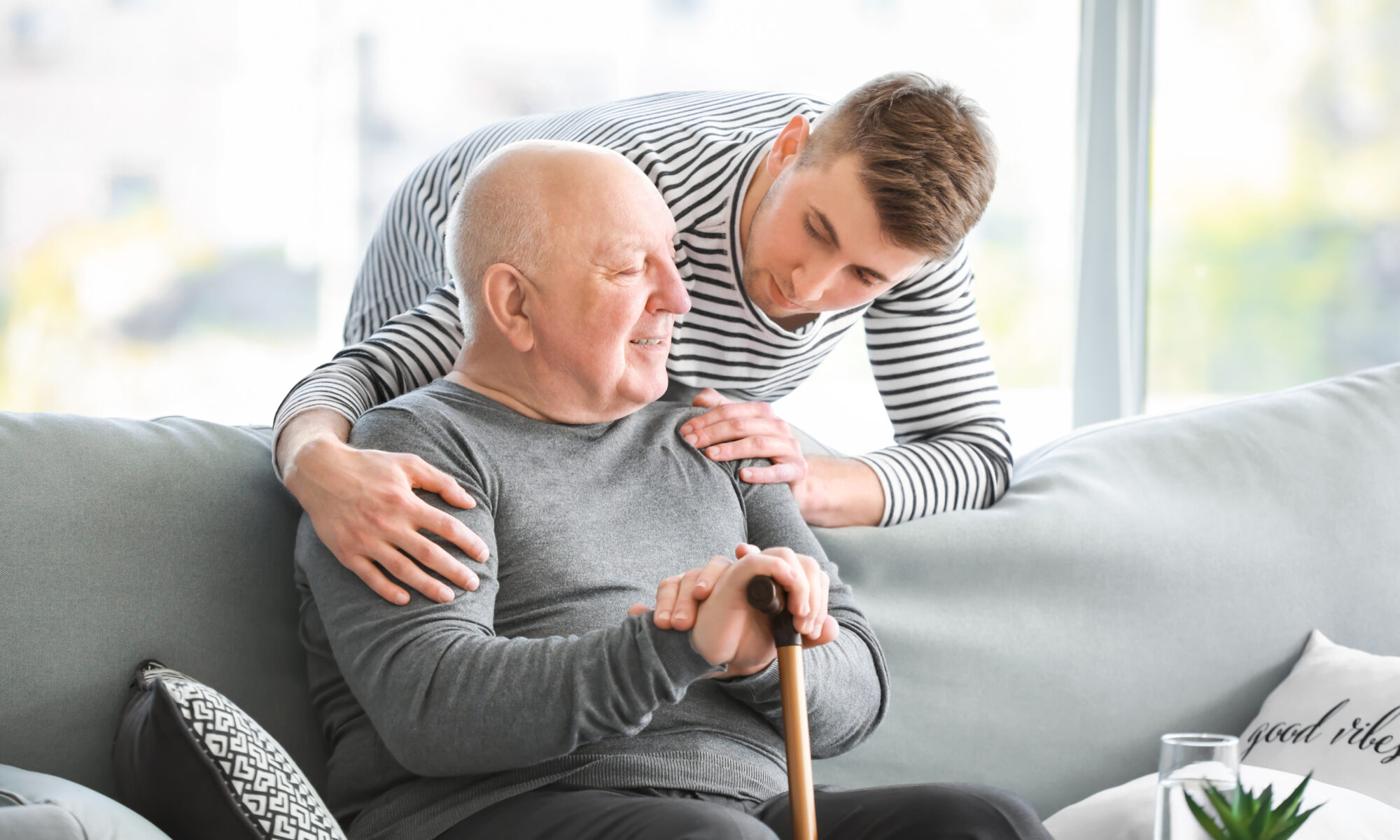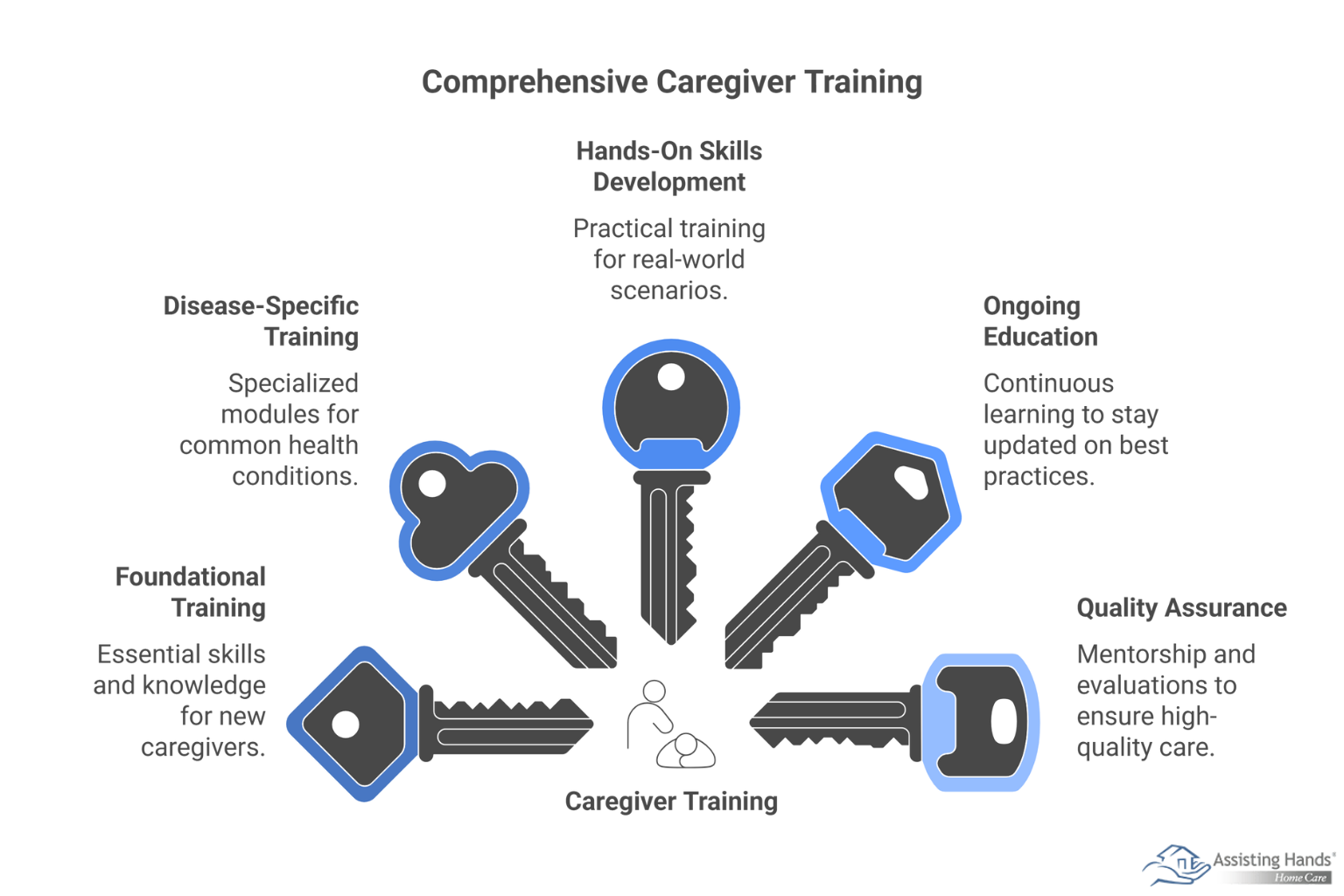
Table of Content
Providing high-quality home care requires more than basic caregiving skills—it demands specialized training tailored to each client’s unique needs. Home care agencies invest heavily in comprehensive training programs to ensure their caregivers can handle everything from dementia care to postsurgical recovery with confidence and expertise.
Comprehensive Orientation and Foundational Training
New caregivers begin with extensive orientation programs that typically span several weeks. This foundational training covers essential topics, including:
- Basic medical terminology and understanding vital signs
- Proper body mechanics and safe transfer techniques
- Infection control protocols and hygiene standards
- Documentation requirements and care plan management
- Emergency response procedures and when to contact medical professionals
Most agencies require 40–75 hours of initial training before caregivers can work independently with clients. This ensures every caregiver understands fundamental safety protocols and agency standards regardless of their previous experience.

Disease-Specific Training Programs
Home care agencies develop specialized training modules for common conditions their caregivers encounter. These targeted programs address the unique challenges of caring for clients with specific health issues:
- Dementia and Alzheimer’s care training – Focuses on communication techniques, managing behavioral changes, creating safe environments, and understanding disease progression stages
- Diabetes management training – Covers blood sugar monitoring, medication reminders, recognizing symptoms of hyperglycemia and hypoglycemia, and supporting dietary requirements
- Post-stroke care training – Emphasizes mobility assistance, speech therapy support, fall prevention, and helping clients regain independence in daily activities
- Palliative and hospice care training – Prepares caregivers for end-of-life care, pain management support, family communication, and emotional support techniques
Hands-On Skills Development
Practical skills training ensures caregivers can confidently perform essential tasks in real-world situations. Agencies typically use simulation labs or supervised practice sessions to teach:
- Proper use of mobility equipment like walkers, wheelchairs, and transfer boards
- Medication reminder systems and documentation protocols
- Personal care assistance while maintaining client dignity
- Basic wound care and infection prevention
- Operating medical equipment such as oxygen concentrators or blood pressure monitors
Many agencies partner with local healthcare facilities or nursing schools to provide hands-on training opportunities in controlled environments before caregivers work with actual clients.
Although it may be challenging to find reliable, highly rated at-home care, you can turn to Assisting Hands Home Care. Our caregivers are expertly trained to assist seniors with a wide array of important tasks, including cooking, bathing, light housekeeping, and exercise.
Ongoing Education and Certification Programs
High-quality home care agencies recognize that learning doesn’t stop after initial training. They implement continuous education programs to keep caregivers updated on best practices and new developments in home care:
- Monthly training sessions covering new techniques or refresher courses
- Online learning platforms for flexible skill development
- Specialized certifications in areas like CPR and first aid
- Cross-training opportunities to expand caregiver capabilities
- Regular competency assessments to ensure skill retention
Some agencies also support caregivers pursuing formal certifications such as Certified Nursing Assistant (CNA) or Home Health Aide (HHA) credentials, often providing tuition assistance or flexible scheduling for classes.
If you’re the primary caregiver for a senior family member and you need respite care, Portland, OR, Assisting Hands Home Care is here to help. Our home caregivers are trained to assist older adults with a wide variety of everyday tasks, including meal prep, physical activity, and personal hygiene. We also provide 24-hour care and specialized care for seniors with Alzheimer’s, dementia, and Parkinson’s.
Quality Assurance and Mentorship
Experienced caregivers play a crucial role in training newcomers through structured mentorship programs. New hires typically work alongside seasoned professionals with their first several client visits, receiving real-time guidance and feedback.
Supervisors conduct regular evaluations to assess caregiver performance and identify areas for additional training. This quality assurance process includes:
- Scheduled observations during client visits
- Client and family feedback collection
- Skills assessments and competency testing
- Career development planning and goal setting
- Support for challenging situations or difficult cases
Through these comprehensive training approaches, home care agencies ensure their caregivers are well prepared to provide safe, compassionate, and effective care tailored to each client’s specific needs.
When researching agencies that provide in-home care, Portland, OR, families are usually looking for flexible care plans, compassionate and highly trained caregivers, and 24/7 availability. Whether you need respite care to take a break from your caregiving duties or your senior loved one needs around-the-clock assistance at home, you can rely on Assisting Hands Home Care. Call Assisting Hands Home Care today to learn about our high-quality in-home care services.
